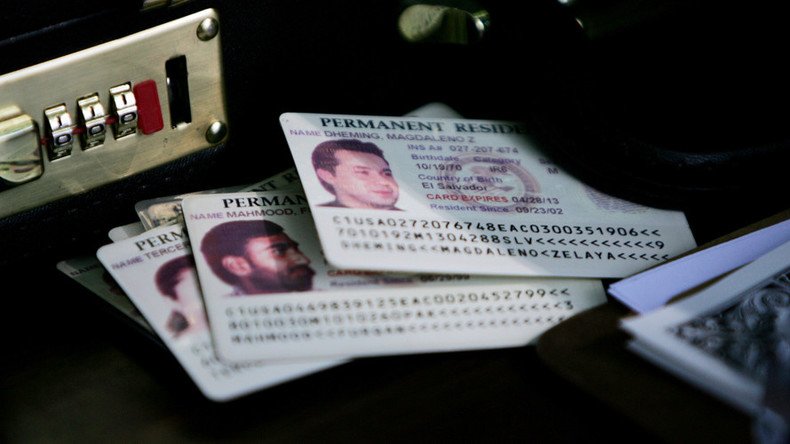Over 680,000 US green cards went to immigrants from Muslim nations since 2009

The Department of Homeland Security said 680,000 green cards were issued to immigrants from Muslim-majority countries from 2009 to 2013. Among the recipients were refugees, prompting one US senator to call for a reduction.
The data, which comes from the DHS’s Yearbook of Immigration Statistics, shows the top countries for green card recipients were Pakistan, Iraq, and Bangladesh. Over five years, 83,000 cards were issued to citizens of Pakistan and Iraq, and 75,000 to people from Bangladesh.
The documents were submitted to the Senate Subcommittee on Immigration and the National Interest in November of 2015 and released to the press by the subcommittee’s chairman, Senator Jeff Sessions (R-Alabama).
“Among those receiving green cards are individuals admitted to the United States as refugees, who must apply for adjustment to Lawful Permanent Resident (green card) status within one year of admission,” said Sessions in a press release. “Refugees have instant access to federal welfare entitlements, along with local benefits and education services; these costs are not offset.”
Sessions endorsed his party’s presidential front-runner Donald Trump in February, and has joined the candidate’s team of foreign policy advisors since then.
Destiny of many child refugees unknown as feds dont track them - report https://t.co/Ve1o1SKMDmpic.twitter.com/NaGkqG6E5n
— RT America (@RT_America) February 23, 2016
Sessions said that if no changes are made to the policy, the US can expect to issue green cards to another 680,000 immigrants from these countries in the next five years.
“To curb this extreme level of future immigration growth, as a supermajority of voters wish, will require Congress to take up and pass a bill to reduce the number of visas issued on autopilot each and every year,” said Sessions.
Accepted but not welcomed: Refugees face difficulties moving to troubled US areas (VIDEO) https://t.co/AePoX7kniBpic.twitter.com/PujLs7LBgU
— RT America (@RT_America) January 19, 2016
A breakdown of the data for a specific year tells a rather different story, however. In 2013, 530,802 green card recipients, about 54 percent of the total, were status adjusters – people who were already living in the United States before 2013, but whose green card applications were approved that year, according to the Migration Policy Institute.
House lawmaker wants Syrian, Iraqi refugees to take lie detector testshttps://t.co/fsiko5qSiWpic.twitter.com/2JcvSEvQAX
— RT America (@RT_America) December 31, 2015
Of those, 44 percent were immediate relatives of US citizens, 21 percent had taken advantage of a family-sponsored preference, and 16 percent received their green card through an employment-based preference. Another 12 percent were adjusted from refugee or asylee status, and 5 percent were diversity-lottery winners.
Protesters stage NYC rally in support of refugees [VIDEO] https://t.co/g7U8nBhoEY
— RT America (@RT_America) December 12, 2015
The top five countries of birth for new green cards in 2013 were Mexico (14 percent), China and India (7 percent each), the Philippines (5 percent), and the Dominican Republic (4 percent).












